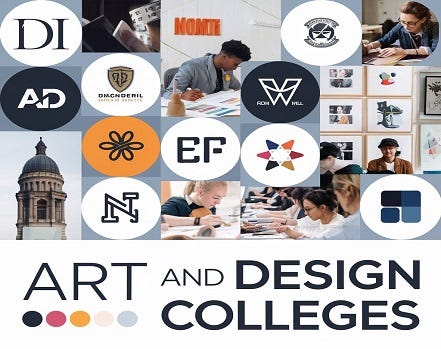Education Insider Magazine | Top Art and Design Colleges
 john campbell
john campbellIntroduction
In an age dominated by visual culture, the role of art and design colleges has never been more significant. These institutions not only serve as training grounds for future artists, designers, and creative leaders but also act as incubators for innovation, culture, and critical thinking. From traditional fine arts to cutting-edge digital design, art and design colleges provide students with the skills and vision to shape the aesthetics and functionality of the world around us.
The Role of Art and Design Education
Art and design colleges go far beyond teaching technical skills. They cultivate creativity, problem-solving abilities, and a strong visual sensibility — essential tools in fields as diverse as advertising, architecture, gaming, fashion, and product design.
Students learn to develop original concepts, communicate visually, and understand historical and contemporary artistic movements. These colleges emphasize interdisciplinary thinking, encouraging collaboration between departments such as graphic design, film, photography, and industrial design.
Choosing the Right College
Selecting the right art and design school can significantly impact a student’s career. Factors to consider include:
Curriculum Focus: Some colleges specialize in traditional media, while others emphasize digital or applied arts.
Faculty and Mentorship: Access to practicing professionals provides students with industry insights and networking opportunities.
Facilities and Resources: Well-equipped studios, workshops, and labs enhance hands-on learning.
Industry Connections: Internships, alumni networks, and collaborations with companies are vital for post-graduate success.
Location: Being in or near a creative hub like New York, London, or Tokyo can open up numerous professional opportunities.

Global Leaders in Art and Design Education
Some of the world’s most renowned art and design colleges include:
Rhode Island School of Design (RISD) — USA
Parsons School of Design — USA
Royal College of Art — UK
Politecnico di Milano — Italy
Tokyo University of the Arts — Japan
Each of these institutions offers unique strengths, often reflecting their local artistic heritage and contemporary industry trends.
Challenges in Art Education
Despite their importance, art and design programs often face challenges such as:
Underfunding: Especially in public education systems, the arts are frequently undervalued.
Career Misconceptions: Many still view art careers as less stable, despite the growing demand for creative professionals in tech, media, and design.
Diversity and Accessibility: There is ongoing work needed to make art education more inclusive and representative.
Conclusion
Art and design colleges are essential pillars of cultural and technological progress. They foster the next generation of visual thinkers who will influence how we experience everything from brands to built environments. As the demand for creativity and innovation continues to rise in the global economy, investing in art and design education is not just a cultural priority — it’s an economic one.
Subscribe to my newsletter
Read articles from john campbell directly inside your inbox. Subscribe to the newsletter, and don't miss out.
Written by

